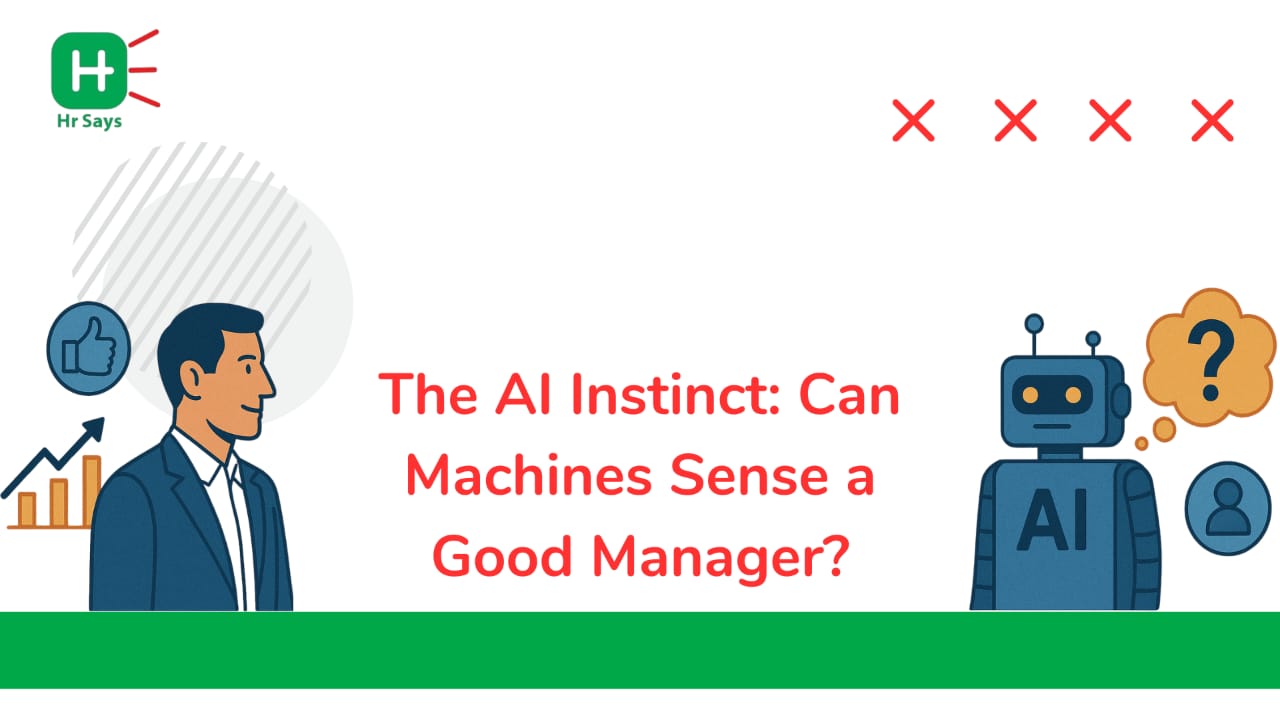Can artificial intelligence truly spot a good manager? As organizations navigate complex leadership structures, predicting managerial effectiveness has become a game-changer. AI steps in—not as a replacement, but as a silent observer decoding patterns human eyes might miss.
The Quiet Revolution in HR
AI isn’t loud. It doesn’t shout decisions. It watches. It learns. Human Resource departments have slowly shifted from gut instincts to data-backed strategies. AI is now helping assess what makes a manager effective—not just on paper, but in real-time dynamics.
● Is the team morale stable over time?
● How often are deadlines met under a leader?
● Do employees leave under one manager more than others?
AI connects these dots.
What AI Really Looks For
It’s not charisma or a polished resume.
Behavior Over Buzzwords
AI tools track behavior across platforms—email tone, meeting cadence, collaboration on shared tasks. Patterns emerge.
● Consistency in communication
● Response time to team queries
● Balanced task distribution
These small signals create a larger picture.
Engagement Metrics
AI doesn’t just monitor managers. It watches teams.
● Are employees engaged?
● Are burnout signals rising?
● Does the team grow in skill under the manager?
AI picks up shifts before humans do.
Why It Matters
Performance reviews can be biased. People can mask inefficiencies with charm. But AI doesn’t get distracted.
Bias Reduction
When humans evaluate humans, subjectivity creeps in. AI levels the field.
● Gender, age, or background doesn’t sway algorithms.
● Only performance, consistency, and results matter.
That’s a subtle but powerful shift.
Early Intervention
When patterns suggest managerial fatigue or disconnect, HR can act—early.
● Coaching can be offered.
● Roles can be adjusted.
● Teams can be restructured—proactively.
No drama. Just precision.
Limitations Still Exist
Let’s be honest—AI can’t understand context like a human does.
● It can’t always sense intent.
● It may misread silence as disengagement.
● Human warmth, nuance, and gut feeling? Still irreplaceable.
Which is why AI shouldn’t be the judge. Just a mirror.
Where It’s Heading
Predictive tools will grow sharper. More data means better insights. But it also means more responsibility.
● Transparency in algorithms is a must.
● Ethical use should guide implementation.
● AI should assist—not dominate—decision-making.
This isn’t about replacing leaders. It’s about revealing their impact, quietly and clearly.
Conclusion
In a world full of noise, AI offers a whisper of truth. It doesn’t decide who’s a good manager—but it helps surface patterns, often invisible. With balance and ethics, this quiet observer can change how leadership is understood, developed, and supported.

 AI is helping organizations understand managerial effectiveness through behavioral patterns and team dynamics. It isn’t perfect, but it’s a tool—a powerful one—that’s reshaping how leadership potential is evaluated.
AI is helping organizations understand managerial effectiveness through behavioral patterns and team dynamics. It isn’t perfect, but it’s a tool—a powerful one—that’s reshaping how leadership potential is evaluated.








.jpeg)
.jpeg)

.jpeg)





.jpeg)



.jpeg)

.jpeg)



